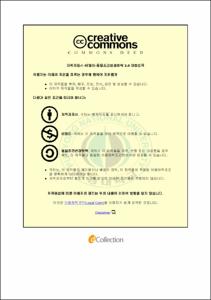특수고용직 가족건강성에 영향을 미치는 노동요인에 관한 탐색적 실증연구
- Alternative Title
- An Exploratory and Empirical Study on the Labor Factor Affecting the Family Strength in the Self-employment
- Abstract
- The purpose of this study is to examine empirically the effect of labor factors on the family strength in the self-employment.
The labor factor includes income appropriateness, transportation fee appropriateness, incentive justice, possibility of supply security, work hours, labor at night, job risk, physical load, time pressure, job pressure, horizontal conflict, vertical conflict, independence, time flexibility, and task autonomy. The family strength is consisted of ten dimensions: respect, commitment, appreciation and affection, positive communication, sharing values and goals, role performing, physical health, connectedness with social system, economic stability, and ability to solve the family problem.
The data for this study is obtained from the survey on a sample of 159 laborers working as truck driver in transportation industry.
This study tests hypotheses by using a multiple regression analysis.
Three important empirical findings emerge from this study. First, two independent variables, income appropriateness(H1-1) and physical load(H1-8), affect significantly the family strength, so H1-1 and H1-8 are supported.
Second, transportation fee appropriateness, incentive justice, labor at night, job risk, time pressure, job pressure, horizontal conflict, vertical conflict, independence, time flexibility, and task autonomy do not affect significantly the family strength, so H1-2, H1-5, H1-6, H1-7, H1-9, H1-10, H1-11, H1-12, H1-13, H1-14, and H1-15 are rejected.
Finally, possibility of supply security(H1-3) and work hours(H1-4) affect significantly the family strength, but H1-3 and H1-4 are rejected because of the inconsistence of anticipated direction.
Based on the empirical results, this study suggests the implications of findings and some directions for future research.
Key words: family strength, labor factor, self-employment, transportation industry
- Issued Date
- 2013
- Awarded Date
- 2013. 8
- Type
- Dissertation
- Publisher
- 부경대학교
- Alternative Author(s)
- Kim, Minju
- Affiliation
- 대학원
- Department
- 대학원 경영학과
- Advisor
- 윤영삼
- Table Of Contents
- 제1장 머리말 1
제1절 연구의 배경 및 목적 1
제2절 연구의 방법 및 체계 3
제2장 이론적 배경 5
제1절 고용형태로서의 특수고용 5
1. 특수고용직의 개념 및 구성 5
2. 특수고용직의 특성: 정규직과의 비교 9
3. 특수고용직의 동향 11
제2절 가족건강성 19
1. 가족건강성의 개념 및 구성 19
2. 가족건강성에 대한 영향요인: 노동요인을 중심으로 23
제3절 화물자동차운송업과 화물노동자의 동향 24
1. 화물자동차운송업의 경과와 동향 24
2. 화물자동차운송업의 노동실태 30
제3장 실증연구의 모형과 방법 36
제1절 연구모형 36
제2절 가설 설정 37
제3절 변수의 조작적 정의 및 연구설계 40
1. 변수의 조작적 정의 및 설문항목의 구성 40
2. 연구표본 43
3. 분석방법 43
제4장 실증연구의 분석결과 44
제1절 기술통계 분석결과 44
제2절 상관관계 분석결과 45
제3절 가설의 검증결과 47
제4절 가족건강성 차원별 다중회귀분석의 결과 49
제5절 해석과 토의 53
제5장 맺음말 56
제1절 연구결과의 요약 및 시사점 56
제2절 연구의 한계 및 향후 연구방향 60
참고문헌 61
[부록 1] 설문지 70
Abstract 74
- Degree
- Master
- Files in This Item:
-
-
Download
 특수고용직 가족건강성에 영향을 미치는 노동요인에 관한 탐색적 실증연구.pdf
기타 데이터 / 690.15 kB / Adobe PDF
특수고용직 가족건강성에 영향을 미치는 노동요인에 관한 탐색적 실증연구.pdf
기타 데이터 / 690.15 kB / Adobe PDF
-
Items in Repository are protected by copyright, with all rights reserved, unless otherwise indicated.